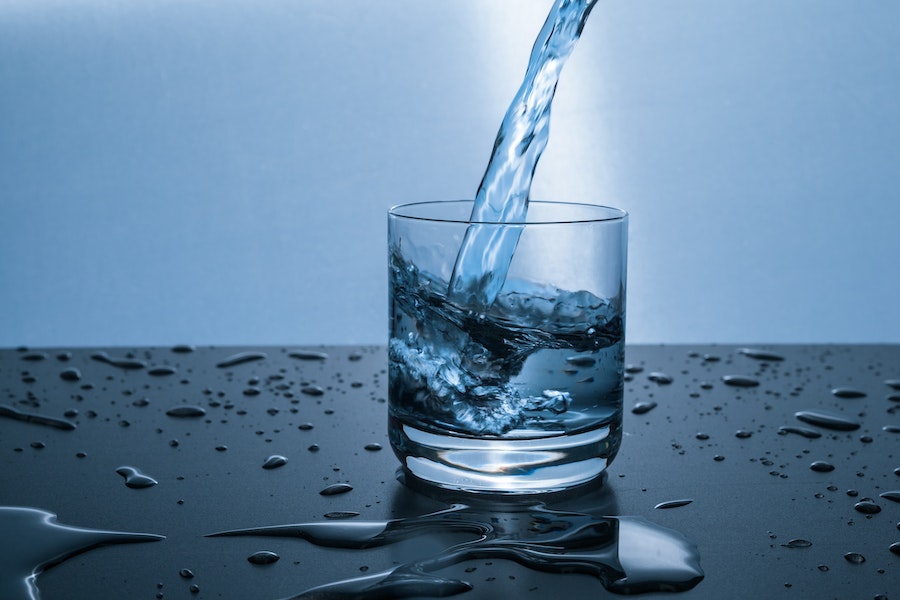The age-old practice of washing dishes in hot water has long been considered the gold standard for achieving squeaky-clean, germ-free dinnerware. However, in an era where energy conservation and environmental consciousness are paramount, the question arises: Can you wash dishes in cold water? This article delves into the intriguing world of dishwashing with cold water, exploring the myths, benefits, and practicalities of this alternative approach. Whether you’re looking to reduce your environmental footprint or simply curious about the possibilities, read on to discover the truth behind the temperature of your dishwashing water.
Can you wash dishes in cold water?
Yes, you can wash dishes in cold water, but it’s essential to consider several factors. Cold water can be adequate for lightly soiled dishes and is more energy-efficient. However, for heavily soiled or greasy items, hot water might be more suitable. Good dish soap, proper scrubbing techniques, and thorough rinsing are crucial when washing dishes in cold water to ensure they come out clean and germ-free. Ultimately, the choice between hot and cold water depends on the level of soiling and your environmental and energy-saving goals.
The Role Of Water Temperature In Dishwashing
The temperature of the water you use in dishwashing plays a pivotal role in determining the effectiveness of the cleaning process and the overall hygiene of your dishes. Here’s a more in-depth look at the role of water temperature in dishwashing:
Hot water is adequate for dissolving and loosening greasy residues and oils from dishes. When you wash dishes with hot water, it makes it easier to remove stubborn stains, grime, and baked-on food remnants. The higher temperature helps break down these substances, preventing them from adhering to your dishes.
The use of hot water during dishwashing helps to ensure that your dishes are thoroughly sanitized. High temperatures can kill harmful bacteria and germs that may be present in your dishes. This is especially important when handling items that have come into contact with raw meat or other potentially hazardous foods, as hot water can help reduce the risk of foodborne illnesses.
Hot water enhances the performance of dishwashing detergents. When mixed with hot water, dish soap is more effective at gathering, creating a rich and bubbly mixture. This improved lathering ability allows the soap to penetrate and lift away dirt, grease, and food particles more efficiently, resulting in cleaner dishes.
Many people associate hot water with cleanliness and sterilization. Using hot water for dishwashing can provide a sense of assurance that your dishes are not only clean but also hygienic. This can be particularly reassuring when washing dishes by hand.
Hot water can expedite the dishwashing process, reducing the time and effort required to remove tough stains and residues. This efficiency can be a significant advantage in busy kitchens or when dealing with a substantial volume of dishes.
Benefits Of Washing Dishes In Cold Water
Washing dishes in cold water offers several benefits, from energy conservation to environmental sustainability. Here are some of the advantages:
Energy Efficiency: One of the most significant benefits of washing dishes in cold water is energy savings. Heating water accounts for a substantial portion of household energy consumption. By using cold water, you reduce the energy required for dishwashing, resulting in lower utility bills and a reduced carbon footprint.
Environmental Impact: Cold water dishwashing aligns with eco-friendly practices. It helps decrease greenhouse gas emissions associated with water heating, contributing to a more sustainable and environmentally conscious lifestyle. Conserving energy resources is crucial for mitigating climate change.
Preserving Dish Quality: Cold water is gentle on delicate dishes, such as fine china, crystal glassware, or items with decorative patterns and decals. Using hot water for these items can lead to thermal shock and potential damage. Cold water helps preserve the longevity and aesthetics of your valuable tableware.
Skin Health: Hot water can be harsh, causing dryness and irritation, especially with prolonged exposure. Washing dishes in cold water is more comfortable for your hands and less likely to lead to skin issues. It’s an essential consideration if you frequently wash dishes by hand.
Safety: There’s a reduced risk of scalding or burning yourself when using cold water. Accidental splashes or contact with hot water can result in burns, but cold water eliminates this hazard.
Quick Rinsing: Cold water rinses are faster because you don’t need to wait for the water to heat up. This can help speed up the dishwashing process, especially when you have a busy schedule.
What Are The Factors That Wash Dishes In Cold Water?
Washing dishes in cold water can be effective in certain situations, but it depends on various factors. Here are the key factors that influence whether washing dishes in cold water is suitable:
Degree of Soiling:
The level of soiling on your dishes is a crucial factor. Cold water is more suitable for lightly soiled dishes with minimal food residue. For dishes with heavy grease, baked-on stains, or tough-to-remove food particles, hot water may be more effective in breaking down and removing these contaminants.
Dishwashing Detergent:
The type and quality of dishwashing detergent play a significant role. Cold water can be less effective at activating and lathering detergent than hot water. Therefore, using a high-quality dish soap that works well in cold water can enhance the cleaning process.
Scrubbing Techniques:
When washing dishes in cold water, you may need more physical effort to scrub away dirt and grime. Proper scrubbing techniques, such as using a scrub brush or sponge and applying enough pressure, become essential for effective cleaning.
Water Pressure:
Adequate water pressure can compensate for the lower temperature when washing dishes in cold water. If you have a strong water flow, it can help dislodge food particles and residues more effectively.
Pre-Rinsing:
Pre-rinsing dishes before washing them in cold water can help remove loose food debris, making the cleaning process more manageable. However, it’s important to save excessive amounts of water during pre-rinsing, as this can negate some of the water-saving benefits of cold water dishwashing.
Rinsing Thoroughness:
Cold water rinsing should be thorough to ensure that all soap and food residue is removed from the dishes. Inadequate rinsing can leave a soapy or filmy residue on the dishes.
Conclusion
In conclusion, washing dishes in cold or hot water should be based on carefully considering various factors. Cold water dishwashing offers several advantages, including energy efficiency, environmental benefits, and improved personal comfort. It’s an excellent choice for lightly soiled dishes and delicate items and for those looking to reduce their carbon footprint. However, it’s essential to recognize that cold water may be less effective in removing heavy grease, baked-on stains, or stubborn food residues. In such cases, hot water or alternative cleaning methods may be necessary to ensure thorough cleaning and sanitization.
FAQ’s
Q: Does cold water kill bacteria and germs on dishes?
A: Cold water can help remove bacteria and germs from dishes, but it may not be as effective as hot water in killing them. To ensure proper sanitation, you can use an antibacterial dishwashing soap or employ other sanitizing methods when necessary.
Q: Can I use cold water in a dishwasher?
A: Most modern dishwashers have heating elements to heat the water to an appropriate temperature for effective cleaning and sanitization. While you can use cold water in a dishwasher, it’s recommended to let the dishwasher heat the water to ensure optimal cleaning results.
Q: Are there any benefits to using hot water for dishwashing?
A: Hot water has the advantage of being more effective at dissolving grease and grime, which makes it easier to remove tough stains and baked-on food residues. It is also better for sanitization purposes, especially when dealing with items that have come into contact with raw meat or eggs.





















